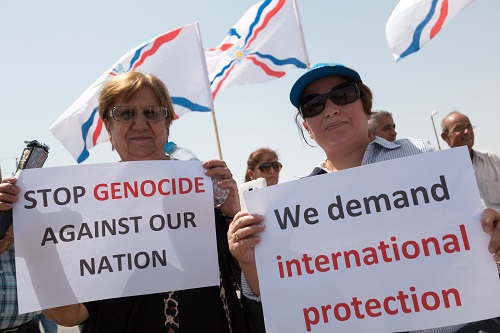
Campaigners for Christian and Yazidi victims of the Islamic State group welcomed the UN’s decision last month to recognise the Islamic State group’s crimes as “genocide”, but human rights advocate Ewelina Ochab questions why “forced displacement” wasn’t included.
The UN Security Council voted unanimously to create an investigative team to collect evidence of genocide and war crimes committed against civilians by IS members.
Ochab, author of ‘Never Again: Legal Responses to a Broken Promise in the Middle East’, applauds the resolution’s wide scope, including murder, kidnaping, enslavement, sexual violence and the destruction of cultural heritage and trafficking cultural property.
But she says “the main genocidal crime perpetrated against Christians, namely forced displacement, was excluded from the resolution. This despite the fact that in August 2014, over 120,000 Iraqi Christians from Nineveh Plains were forcibly displaced to Kurdistan and other regions. Similarly, thousands of Yazidis were forcibly displaced from Sinjar”.
“The issue whether forced displacement will be within the scope of the inquiry will have to be clarified,” she adds.
Campaigners for the victims of IS have wanted assurances that militants with European citizenship who have already left the Middle East will be prosecuted for crimes they committed in Iraq and Syria.
The actions of IS against Yazidis, Christians and other minority groups have been declared as “genocide” by Britain’s House of Commons, the European Parliament, the US Secretary of State Rex Tillerson and his predecessor John Kerry.